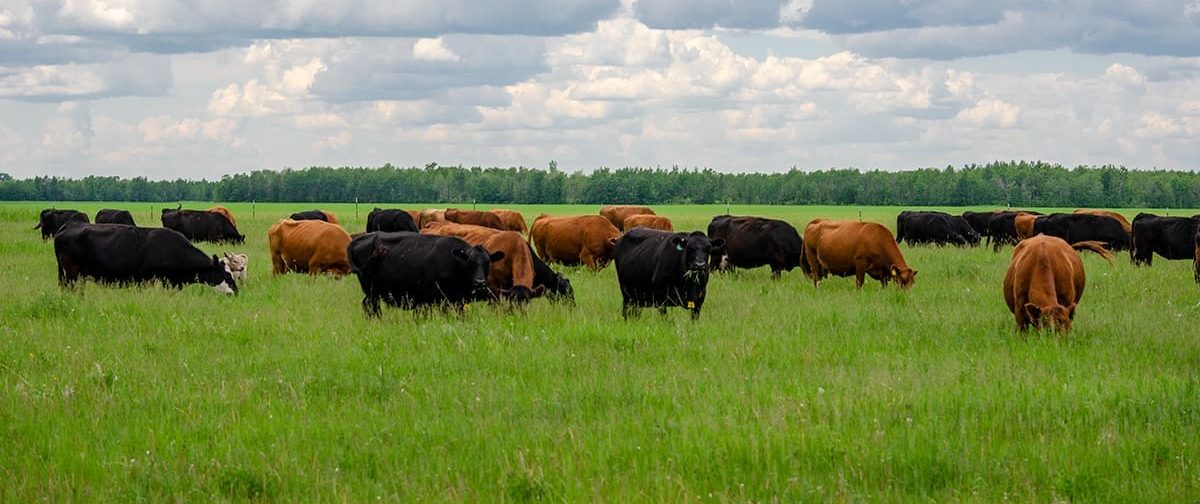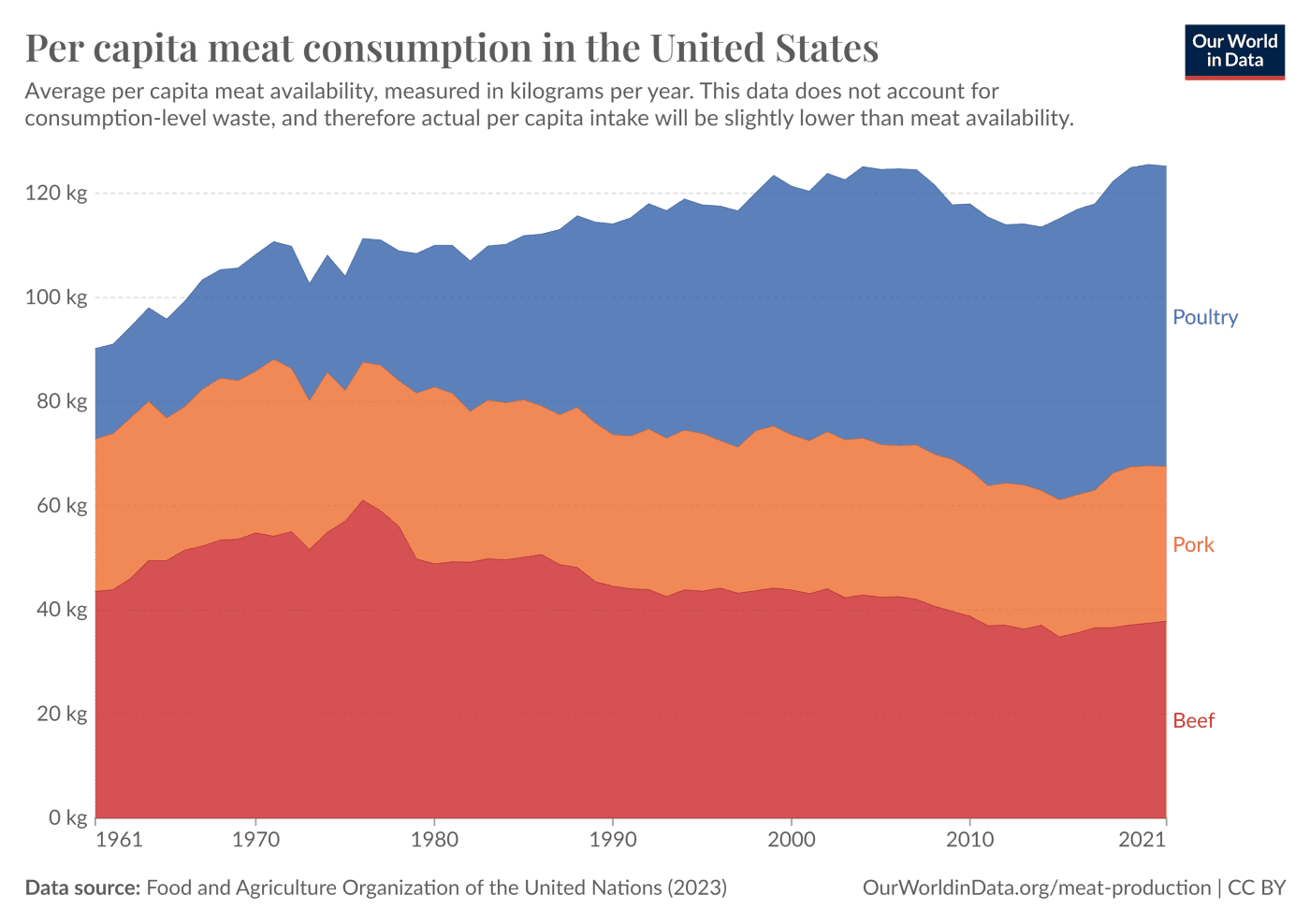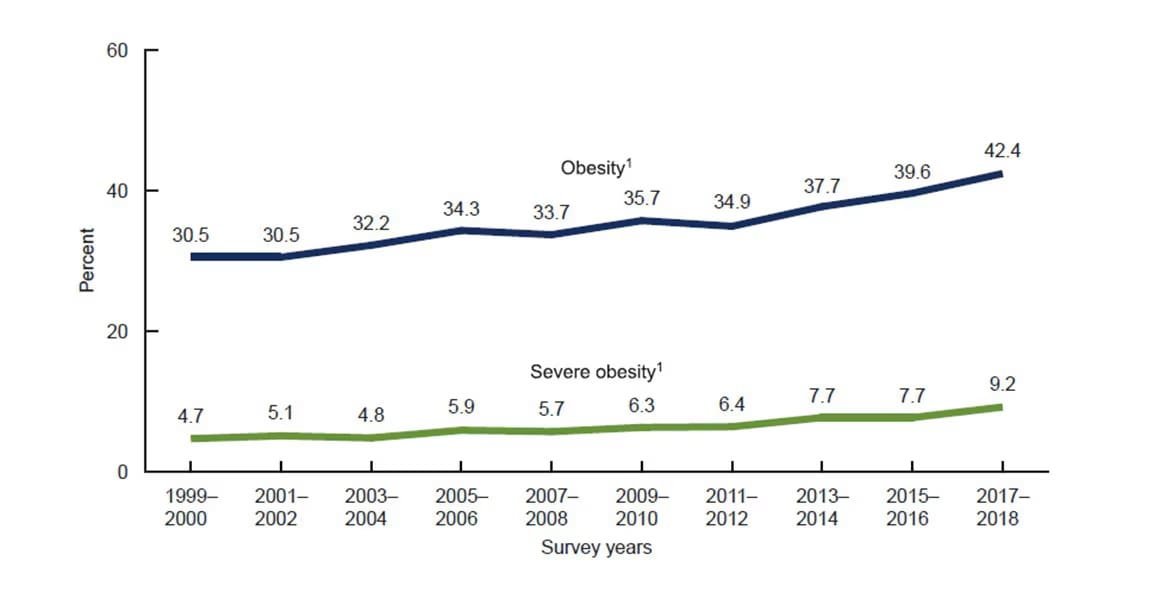AS obesity rates and chronic disease in the United States continue to climb, the industry’s peak representative body has pointed out that red meat consumption is on the direct opposite path.
The comments were made in response to a meeting the National Cattlemen’s Beef Association had about a review of the country’s dietary guidelines, which has been undertaken by a committee of 20 “nationally recognised nutrition and public health experts” over the past two years. That committee will provide recommendations to the Government.
But the NCBA has raised concerns about the process this week, saying the committee had changed direction at the last minute and had recommended a decrease in red meat consumption.
“The preview meeting of the Dietary Guidelines Advisory Committee this week stands out as one of the most out-of-touch, impractical, and elitist conversations in the history of this process,” said NCBA Vice President of Government Affairs Ethan Lane.
“After 22 months of public discussion and lip service to transparency, we are disappointed by the number of chaotic new directions that were proposed at the literal last minute. We would laugh at the suggestion that beans, peas, and lentils are going to replace lean red meat and fill all the nutrient gaps Americans are facing if it weren’t such a dangerous and deceptive idea.”
One issue the NCBA has been raising is that red meat consumption has been decreasing while obesity and chronic disease is on the rise.
“We’ve had more than four decades of Dietary Guidelines advice, and during that time red meat consumption has declined, yet obesity and chronic disease is on the rise,” NCBA nutrition science director and registered dietitian Dr Shalene McNeill said.
“70pc of the calories in the U.S. diet are plant based. Now, the committee wants to reduce red meat intake even further, marginalising the 80pc of the population who identify themselves as meat eaters.”
According called Our World in Data, which is using data from United Nations Food and Agriculture Organisation, red meat consumption has largely been decreasing over the past 20 years – with chicken taking a bigger share of overall meat consumption.
A graph from the US National Institute of Diabetes & Digestive & Kidney Diseases shows a considerable increase in obesity rates over that time.
Dr McNeill said by recommending a reduction in red meat, the committee was ignoring the potential nutrient deficiencies.
“These recommendations put some of the most vulnerable at risk for nutrient gaps, especially older Americans, adolescent girls, and women of child-bearing age,” she said.
“Beef contributes only 5pc of the calories in the American diet, but more than 5pc of essential nutrients like potassium, phosphorous, iron, B6, niacin, protein, zinc, choline, and B12. It’s baffling that we are trying to get Americans to cut out red meat when the evidence indicates nutrient deficiencies and chronic disease are increasing as red meat consumption declines.
“As a registered dietitian and nutrition scientist, I am concerned that basing guidelines on highly academic exercises, hypothetical modeling and weak science on red meat will not produce relevant or practical guidelines and will not help us achieve healthier diets.”



